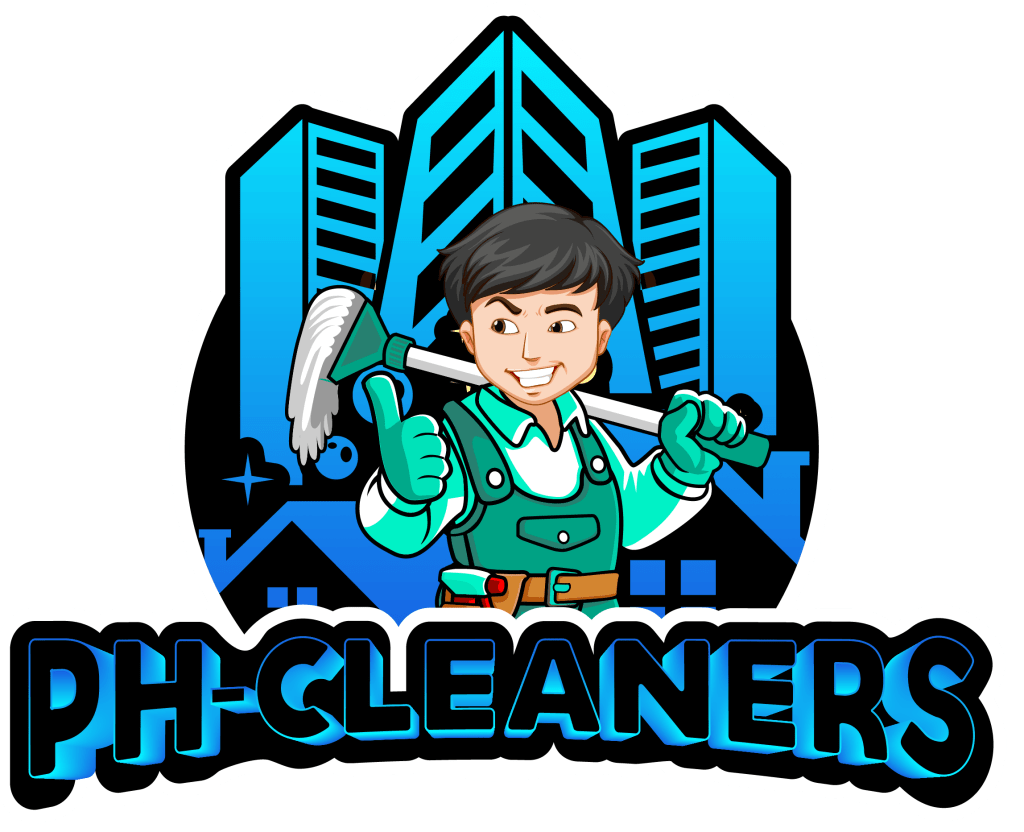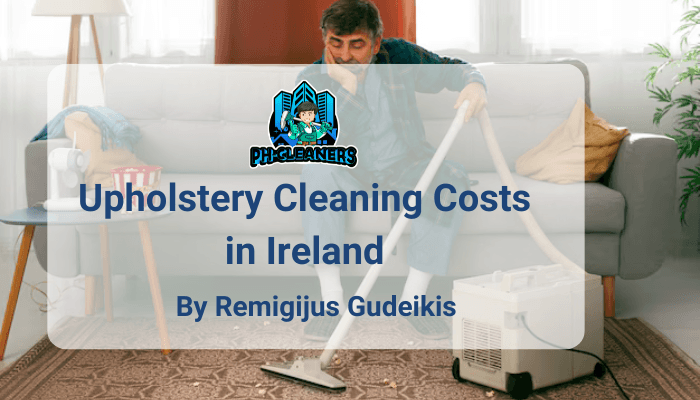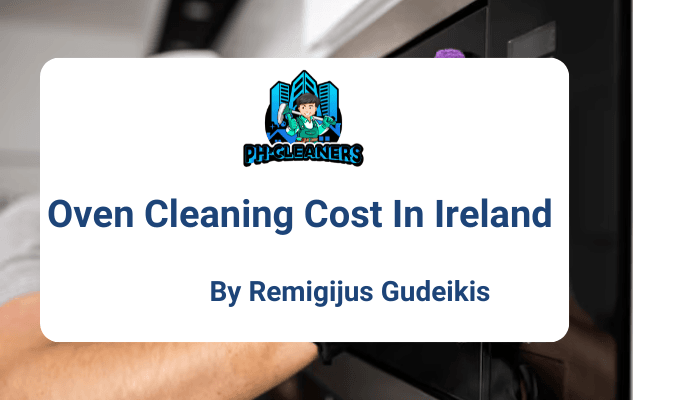Upholstery Cleaning Costs in Ireland
Detailed Guide to Upholstery Cleaning Costs in Ireland
Upholstery cleaning is crucial for maintaining furniture aesthetics, prolonging its lifespan, and improving indoor hygiene. Several factors affect the overall cost of upholstery cleaning in Ireland, ranging from fabric type and size to the specific cleaning methods used. Below is a comprehensive look at the terms and factors that can influence pricing, ensuring you have all the relevant information to estimate costs accurately.
Factors Affecting Upholstery Cleaning Costs:
- Type of Upholstery Material
Upholstery materials come in various types, from delicate to durable, and the cleaning method required directly impacts the cost:- Delicate Fabrics: Materials like silk, velvet, or suede require specialized care. These fabrics are prone to damage if improperly cleaned, requiring specific solvents, dry cleaning techniques, or low-moisture methods. For instance, silk and suede must avoid water-based solutions and may involve dry foam extraction, which drives up the price.
- Durable Fabrics: Polyester, nylon, and cotton blends are less fragile, allowing for steam cleaning or hot water extraction, both quicker and more cost-effective methods.
- Furniture Size and Condition
The size of the furniture and its condition are key factors in determining cleaning costs:- Larger Furniture Pieces: A sectional sofa or full suite will naturally cost more due to the larger surface area needing treatment. L-shaped or U-shaped sofas take more time and cleaning product, increasing labor costs.
- Condition of the Upholstery: Deep-set stains, ingrained dirt, or grime often require multiple cleaning cycles or more powerful detergents, impacting time and cost. Heavy soiling may need pre-treatment or post-cleaning deodorizing.
- Cleaning Method and Technology
Upholstery cleaning services use various technologies, and the method selected for your furniture affects the cost:- Hot Water Extraction: Also known as steam cleaning, this common method uses high-pressure hot water mixed with detergent. It’s ideal for synthetic materials but less suited to natural fibers like wool.
- Dry Cleaning: A low-moisture method using chemical solvents, dry cleaning is typically more expensive, suitable for delicate fabrics. Some services offer encapsulation cleaning, which crystallizes dirt particles, allowing for easier vacuum removal.
- Foam Cleaning: Foam-based products are often used for quick-drying upholstery materials like microfibers and suede. Foam sits on the fabric without soaking in, reducing drying time, but also increasing the complexity of the process.
- Additional Services
Upholstery cleaning companies may offer supplementary services that increase the total bill but provide long-term benefits:- Fabric Protection: Treatments such as Teflon or Scotchgard protection create a barrier over the fabric, preventing future stains. This is often recommended for high-traffic areas and is an add-on service that increases the overall cost.
- Deodorizing and Anti-Allergen Treatments: Useful in homes with pets or allergies, these treatments neutralize odors and remove allergens like dust mites. Using anti-microbial solutions can also prolong cleanliness.
- Spot and Stain Removal: Specific treatments for stubborn stains (e.g., wine, ink, or grease) can be priced separately. Deep-set stains often require individual assessment and may involve the application of solvents or enzymatic cleaners.
- Location and Accessibility
The geographical location of your home impacts the cleaning cost, particularly in urban areas:- Urban vs. Rural Costs: In cities like Dublin or Cork, professional services may cost more due to higher overheads such as transportation and labor charges. On the other hand, rural areas might offer cheaper rates.
- Accessibility of the Furniture: If furniture is located in hard-to-reach areas (e.g., an attic or basement), or if disassembly is required, extra labor costs may apply. This is especially true for large, cumbersome items like sectional sofas or recliners.
Average Upholstery Cleaning Costs in Ireland:
Here’s a detailed breakdown of typical costs based on different furniture types:
- Dining Chairs: Cleaning a single chair costs between €10 and €30, with fabric type and degree of soiling affecting the final price.
- Armchairs: Expect to pay €30 to €50 for armchairs. Chairs with delicate or specialty fabrics like velvet or suede cost more due to required techniques.
- Sofas: A standard three-seater sofa typically costs €80 to €150. Larger L-shaped or sectional sofas with intricate fabrics can range between €150 and €200. For leather upholstery, costs can go higher, often around €150 to €250, due to the special conditioning products required.
- Specialty Fabrics: Items like leather and suede require special treatments, often increasing costs up to €200 per piece. These materials need conditioning treatments post-cleaning to maintain texture, which adds to the price.
Estimating Upholstery Cleaning Costs:
You can make a rough estimate before contacting professionals by considering the following:
- Furniture Size and Layout:
Larger, upholstered pieces require more labor and cleaning solution, raising costs. Consider how large the surface area is, whether the fabric is woven or tufted, and if there are any intricate details. - Fabric Type and Condition:
Delicate fabrics require expert care, while synthetic materials can be cleaned using standard techniques. Factor in the fabric’s age, the level of dirt, and whether you require extra treatments like stain guarding. - Additional Treatments:
Think about whether you want extra services like stain protection, deodorizing, or anti-allergen treatments. These services are beneficial but come at an added cost.
Conclusion:
Upholstery cleaning in Ireland varies widely, with costs depending on fabric type, the condition of your furniture, and the complexity of the cleaning method. Whether you have a standard sofa, a leather armchair, or a delicate fabric loveseat, knowing the factors that influence the price helps you budget effectively and make informed decisions.
For customized cleaning solutions and expert advice on keeping your upholstery in pristine condition, consider reaching out to a reputable provider like Perfect Clean. They offer tailored services designed to meet your specific needs and furniture type.
Frequently Asked Questions
Upholstery cleaning costs vary based on fabric type, furniture size, soiling levels, and optional treatments such as deodorizing or stain guarding.
Cleaning a fabric sofa typically costs between €80 and €150, while leather pieces range from €150 to €250, depending on the treatment required.
Yes, many companies offer discounts when cleaning multiple furniture pieces in one visit, reducing the per-piece cost.
Leather cleaning is generally more expensive than fabric due to the specialized products and techniques needed to maintain the leather’s integrity.
Most experts recommend professional cleaning every 12 to 24 months, depending on usage and exposure to pollutants or allergens.


